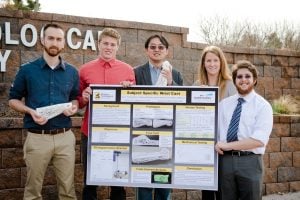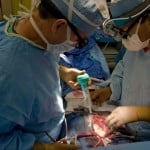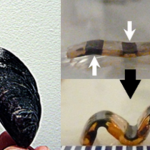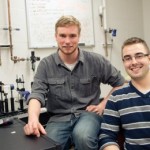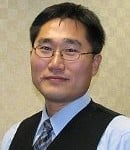Bruce Lee (Bio Med) and graduate student Ameya Narkar (Bio Med) coauthored the paper “pH Responsive and Oxidation Resistant Wet Adhesive based on Reversible Catechol-Boronate Complexation.” The paper was published in Chemistry of Materials. This paper was also coauthored by Tech alumni Brett Barker and Matthew Clisch, as well as Jingfeng Jiang (Bio Med).
DOI: 10.1021/acs.chemmater.6b01851
